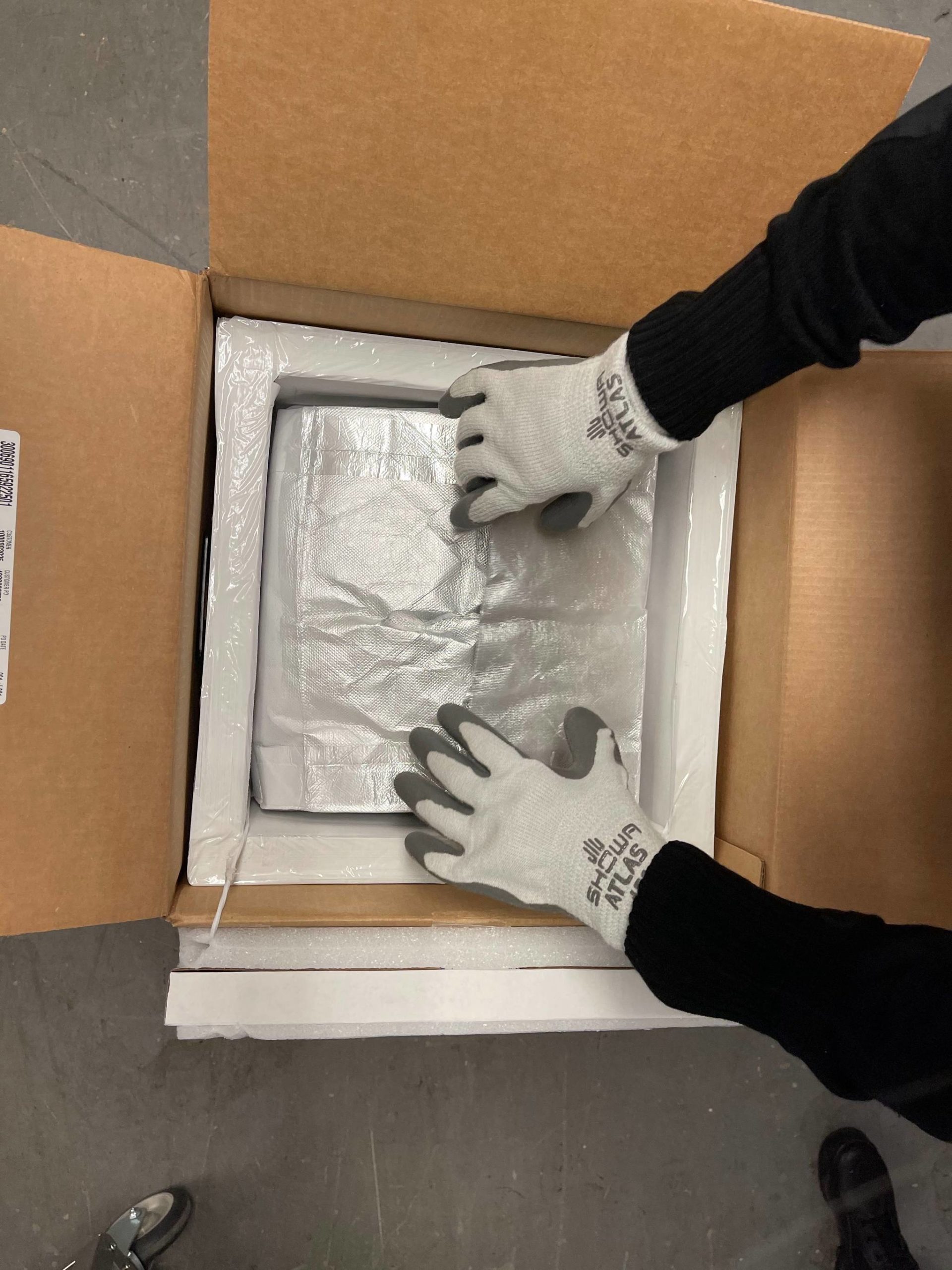The first of Alaska’s 35,100 doses of Pfizer’s COVID-19 arrived via UPS plane in the state on Monday, a long-anticipated development in the fight against the pandemic that will see the first Alaskans vaccinated this week.
Alaska’s Chief Medical Officer Dr. Anne Zink said during a Monday press briefing that the distribution of the vaccine to states across the country was a “big day for the nation.”
The vaccine, made by Pfizer and BioNTech, received Emergency Use Authorization (EUA) from the U.S. Food and Drug Administration (FDA) on Friday. Receiving the EUA means the vaccine cannot be mandated by government entities or by private businesses. Another COVID-19 vaccine, made by Moderna, is currently being evaluated for EUA by the FDA.
In determining who receives the vaccine and when, the state is following guidance from the CDC Advisory Committee on Immunization Practice (ACIP).
The first people to receive the Pfizer vaccine in Alaska will be hospital-based frontline health care workers at highest risk for COVID-19 infection, long-term care facility staff and residents and staff, EMS/fire personnel providing emergency services, Community Health Aide/Practitioners and individuals who are required to perform vaccinations.
Long-term care facility residents and staff include skilled nursing facilities, assisted living homes, state veterans homes and Department of Corrections infirmaries providing care that is similar to assisted living.
Central Peninsula Hospital External Affairs Director Bruce Richards said Monday that CPH will receive one “tray” of 975 vaccine doses. CPH is considered a “mini depot” and will provide doses allotted by the state to others such as pharmacies and EMS. Richards said that CPH will keep 540 of the 975 doses to vaccinate health care workers, who have been suggested by the state and by the federal government to be prioritized. Richards said that vaccinations at CPH are scheduled to begin on Friday for a variety of hospital employees based on their schedules and availability.
Both the Pfizer and Moderna vaccines, which have efficacy rates of more than 90%, require two doses to be fully effective. Individuals receiving the Pfizer vaccine must receive the second dose 21 days after receiving the first. Those receiving the Moderna vaccine must receive their second dose 28 days after receiving the first.
The Alaska Department of Health and Social Services has said in previous media briefings that the federal government is withholding the second dose of the vaccine, meaning the 35,100 doses arriving this week will go to 35,100 individual Alaskans.
Included in the 35,100 initial doses are 11,700 doses allocated by the Indian Health Service to Alaska’s Tribes. Most other U.S. states are receiving their vaccine allotments on a weekly basis, however Alaska opted to receive their entire December allocation upfront, which DHSS has said will allow more flexibility with distribution throughout the state’s unique geography.
One of the logistical challenges of distributing Pfizer’s vaccine is its storage conditions. Unlike most vaccines, Pfizer’s COVID vaccine must be stored at temperatures ranging from -130 to -76 degrees Fahrenheit. Pfizer designed shipping containers packed with dry ice that can maintain ultra-cool temperatures for up to 30 days as long as the dry ice is replenished upon receipt and every five days afterwards. According to DHSS, the shipping containers are also equipped with temperature and tracking devices to ensure the vaccine is kept in the correct conditions throughout shipment.
While in an ultra-cold freezer, the Pfizer vaccine can be stored for up to six months. According to DHSS, the state has identified where such freezers exist throughout Alaska and will be using them to store the vaccine.
In addition to the 35,100 Pfizer doses the state will be receiving and distributing through Wednesday, Alaska also expects to receive 26,800 doses from Moderna’s December shipment. The state’s distribution process for both vaccines will not include distribution to members of the military, who will be vaccinated via a federal allocation.
Health care providers who have fully enrolled in the COVID-19 Vaccination Program are eligible to support the state’s vaccination efforts. According to DHSS, 342 health care providers were fully enrolled as of Dec. 11. DHSS is encouraging clinics, pharmacies and hospitals to enroll, which can be done on DHSS’ website.
Alaska-specific COVID-19 vaccine information can be found on DHSS’ vaccine website at http://covidvax.alaska.gov/. In the meantime, DHSS is encouraging Alaskans to follow COVID-19 mitigation protocols including frequent hand-washing, keeping 6 feet of distance between themselves and people not in their household and wearing a mask when distancing is not possible.
Reach reporter Ashlyn O’Hara at ashlyn.ohara@peninsulaclarion.com.

